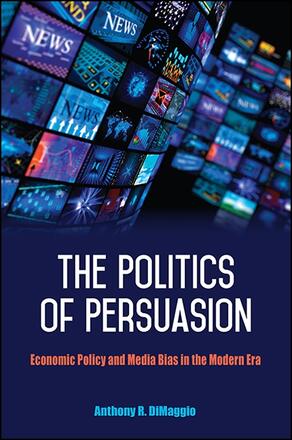
The Politics of Persuasion
Economic Policy and Media Bias in the Modern Era
Alternative formats available from:
Examines how the US media covers high-profile public policy issues in the context of competing claims about media bias.
Description
Tracking the effects of media content on the public is a difficult endeavor, and media effects vary on a subject-to-subject basis. To address this challenge, The Politics of Persuasion employs a multifaceted, mixed method approach to studying mass media and public attitudes. Anthony R. DiMaggio analyzes more than a dozen case studies covering US domestic economic policy and examines a wide range of theories of how bias operates in mass media with regard to coverage of these issues. While some research claims that journalists are overly negative and biased against government officials, some reveals that journalists favor citizens groups. Still other studies contend there is a liberal bias in the media, a progovernment bias, or a bias in favor of advertisers and business interests. Through his analysis, DiMaggio is the first to systematically examine all of these competing interpretations. He concludes that reporters tailor stories to corporate and government interests, but argues that the ability to "manufacture consent" from the public in favor of these elite views is far from guaranteed. According to DiMaggio, citizens often make use of their own personal experiences and prior attitudes to challenge official narratives.
Anthony R. DiMaggio is Assistant Professor of Political Science at Lehigh University and the author of Selling War, Selling Hope: Presidential Rhetoric, the News Media, and U.S. Foreign Policy since 9/11, also published by SUNY Press.
Reviews
"DiMaggio's careful and thorough examination of multiple political sagas quells the idea that most news media share a liberal bias, and establishes strong foundations for his conclusions that journalists often reflect a hegemonic bias of political power and capitalism." — H-Net Reviews (Jhistory)
"This rigorous, multi-method study makes a persuasive case that the major media outlets play an important role in 'indexing' public opinion to the views of the parties." — CHOICE